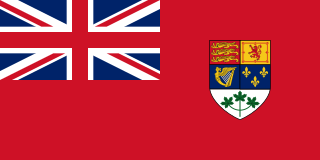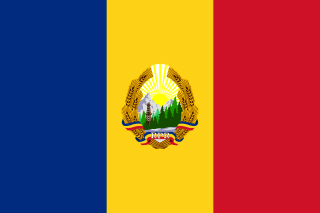
The 1952 Winter Olympics, officially known as the VI Olympic Winter Games and commonly known as Oslo 1952, were a winter multi-sport event held from 14 to 25 February 1952 in Oslo, the capital of Norway.

Canada competed at the 1948 Winter Olympics in St. Moritz, Switzerland. Canada has competed at every Winter Olympic Games.

Norway was the host nation for the 1994 Winter Olympics in Lillehammer. It was the second time that Norway had hosted the Winter Olympic Games, after the 1952 Games in Oslo. In 1994, Norway finished second in the medal ranking to Russia, with strong results in the skiing events.

Sweden competed at the 1948 Winter Olympics in St. Moritz, Switzerland.

The Union of Soviet Socialist Republics competed at the 1988 Winter Olympics in Calgary, Alberta, Canada. It would be the last Winter Olympic Games before the dissolution of the USSR in 1991. Six of the former Soviet republics would compete together as the Unified Team at the 1992 Winter Olympics, and each republic would be independently represented at subsequent Games.

The United States competed at the 1952 Winter Olympics in Oslo, Norway.

Norway competed at the 1948 Winter Olympics in St. Moritz, Switzerland.

Norway was the host nation for the 1952 Winter Olympics in Oslo.

Austria competed at the 1948 Winter Olympics in St. Moritz, Switzerland.

Austria competed at the 1952 Winter Olympics in Oslo, Norway.

Italy competed at the 1948 Winter Olympics in St. Moritz, Switzerland. Nino Bibbia won the nation's first medal at the Winter Games.

Italy competed at the 1952 Winter Olympics in Oslo, Norway.

Switzerland was the host nation for the 1948 Winter Olympics in St. Moritz. It was the second time that Switzerland had hosted the Winter Games, after the 1928 Winter Olympics, also in St. Moritz.

Switzerland competed at the 1952 Winter Olympics in Oslo, Norway.

Finland competed at the 1952 Winter Olympics in Oslo, Norway.

Czechoslovakia competed at the 1948 Winter Olympics in St. Moritz, Switzerland. The country's only medal was a silver in ice hockey.

Czechoslovakia competed at the 1952 Winter Olympics in Oslo, Norway.

Germany competed at the 1952 Winter Olympics in Oslo, Norway after not having been invited to the 1948 Winter Olympics because of their role in World War II, and because the NOC restored in 1947 as Deutscher Olympischer Ausschuß did not represent a recognized state yet. The Federal Republic of Germany was founded in 1949, the NOC for Germany was renamed and in 1951 recognized by the IOC while recognition of a separate National Olympic Committee of the GDR was declined. East Germans were told to cooperate and form a united German team, which they declined in 1952, but accepted for 1956 and later.

Romania competed at the 1952 Winter Olympics in Oslo, Norway.

Japan competed at the 1952 Winter Olympics in Oslo, Norway. Japan returned to the Winter Games after not being invited to the 1948 Winter Olympics because of the nation's role in World War II.














